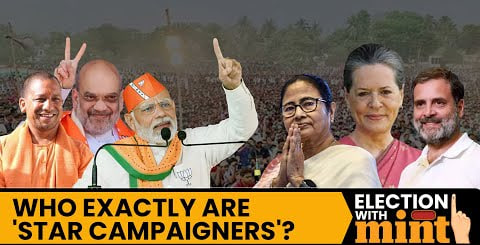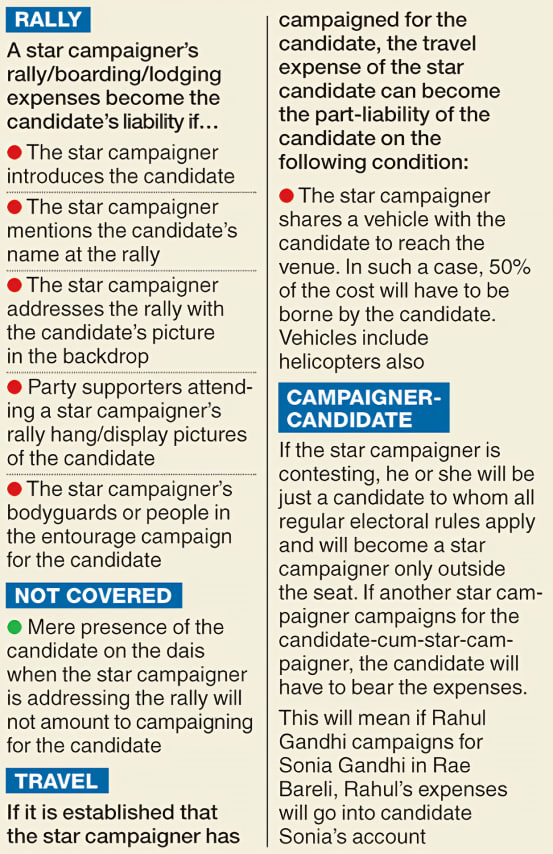





Copyright infringement not intended
Picture Courtesy: https://www.livemint.com/topic/r-gandhi
Context: Many political parties have appointed “Star Campaigners” for campaigning during the election.
About Star Campaigners
Legal Provisions and Appointment of Star Campaigners
Benefits and Expenditure

Issues and EC Advisory
Proposed Amendments
Conclusion
Must Read Articles:
Source:
|
PRACTICE QUESTION Q. Consider the following statements in the context of the Star Campaigner in Indian elections: 1. Star campaigners are individuals who must be members of the political party appointing them. 2. A recognized political party can appoint a maximum of 40-star campaigners for an election. 3. Expenditure incurred by star campaigners on travel for campaigning is included in the election expenditure of the candidate they support. 4. If a star campaigner seeks votes in the name of contesting candidates during a rally, the rally's expenses become part of the candidate's election expenditure. How many of the above statements are correct? A) Only one B) Only two C) Only three D) All four Answer: B Explanation: Statement 1 is incorrect: Star campaigners are usually the top leaders of a political party but can include other celebrities as well. Statement 2 is correct: A recognized political party can appoint a maximum of 40-star campaigners. Statement 3 is incorrect: The Representation of the People Act provides that expenditure incurred by the star campaigners on account of travel by air or any other means of transport for campaigning for their political party shall not be deemed to be part of the election expenditure of a candidate of such party. Statement 4 is correct: If in any rally/meeting organized, the star campaigner seeks votes in the name of contesting candidate(s) or shares the stage with them, then the rally/meeting expense shall be apportioned to the election expenditure of such candidate(s). |










© 2025 iasgyan. All right reserved